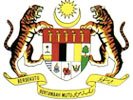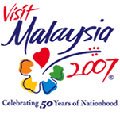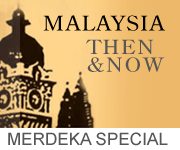Choose one!.


The state capital of Sabah is Kota Kinabalu. It is a relatively new town as most of its original buildings were destroyed during World War II. Only the north-eastern corner of the town remained and is known as 'Old KK' among the locals today.
Sabah - Land Below the Wind - Often called the 'Land Below the Wind' because it lies below the typhoon belt, Sabah occupies the eastern part of North Borneo and is East Malaysia's second largest state with an area of 74,500sq.km
sabah
Sabah Kota Kinabanu Landmark
Sabah has the South China Sea on the west and the Sulu and Celebes Seas on the east with a total coastline of some 1,440 km.
Sabah is mountainous with lush tropical rainforests. Its population of nearly two million is made up of 32 colourful ethnic communities
Kota Kinabalu, the capital, is a fertile lowland plain where most commercial and administrative activity is concentrated.
It is the eastern gateway to Malaysia with direct air links to Brunei, Hong Kong, the Philippines, Singapore, South Korea, Indonesia and Taiwan
THE PEOPLE
The three main indigenous groups of Sabah are the Kadazan-Dusun, Murut and Bajau. The Kadazan-Dusun make up one third of the population and live in the interior plains. They are mainly padi farmers though many have ventured into other trades. The padi harvesting, an important ritual, is accompanied by religious rites presided over by female priestesses called a bobohizan
The Murut, who live in the interior region near the borders of Sarawak and Kalimantan, are farmers and hunters. Many of them still stay in longhouses. Murut weddings are elaborate affairs lasting for days. Everyone is welcome to these weddings
The Bajau, who make up the second largest indigenous group, live mainly on the east and west coasts. East coast Bajau are sea nomads, coming ashore only to sell their fish catches. The west coast Bajau are farmers and are noted for their skilled horsemanship. These handsomely attired 'Cowboys of the East' add a distinctively Sabahan touch to local festivities
Economy - Sabah's economy depends on agriculture, forestry, manufacturing and tourism. Exports include palm oil, cocoa beans, rubber, timber and crude petroleum







